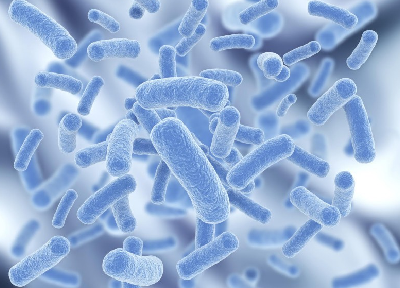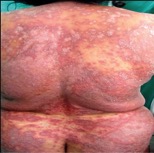Probiotics For Psoriasis

Are Probiotics For Psoriasis Any Good?
Probiotics for psoriasis makes a lot of sense, they are live microbes that are considered good for your body in many different ways. Your body contains trillions of bacteria that all live in a state of harmony. Since the 1990s, scientists have been studying how gut microbes affect different diseases like psoriasis.
Beneficial bacteria in the form of probiotic dietary supplements one of the best ways to introduce healthy viable bacteria into your digestive system. Probiotics can go about building a powerful immune response so that your body can help to fight inflammation, rid itself of toxins as well as increase the digestive system’s ability to digest and absorb foods.
Many psoriasis sufferers have a compromised immune system and often have different kinds of digestive problems, and in particular will experience inflammation, these are all key reasons to consider a regular intake of these beneficial microbes. In addition, having plenty of beneficial bacteria increases your digestive system’s ability to conquer many different kinds of unwanted microbes including yeasts, bad bacteria as well as parasites
Probiotics can play an important role in improving the health and well being of those who experience psoriasis.
Key points
- Taking probiotics may help improve your psoriasis symptoms.
- Adding probiotic-rich foods to your diet is an easy way to introduce these beneficial bacteria into your system.
- Keeping a log to record what probiotics you add, and any results you experience, can help you track any changes or improvements.
Beneficial Bacteria Are Vital For Our Immune System
The amount of microbes in our body is truly staggering, there are literally trillions of bacteria that make up our microbiome. Your body will house about 10 trillion cells, but we host approximately 100 trillion microbial cells.The digestive system alone, including the stomach and intestines, is home to what is thought to be over three pounds of bacteria alone! These bacteria don’t just take up needless space, they are in fact very smart and perform several vital key roles in maintaining our optimal health. Some tell our brain what to do, whereas others tell our immune system what to do.
Scientists have long known that our immune system targets microbes, that is how this system defends us from potentially harmful pathogens. Research since the 1990’s has shown that there are various beneficial microbes that are in fact much more important than previously thought, controlling many vital aspects of our immune system’s functioning.
Do Probiotics For Psoriasis Work?

Dr. Sarkis Mazmanian, a microbiologist at the California Institute of Technology mentions “microbes have figured out our immune system in ways that we, as scientists, still don’t fully understand”. Dr. Mazmanian explains further that our body relies on an immune system which is capable of recognizing friend from foe, microbial invaders that might make us sick and the harmless bacteria that are always inside us which confer benefits to us.
Based on this distinction, our immune system decides when and when not to attack. But the immune system doesn’t make this decision by itself, it is carefully controlled by specific gut bacteria. In other words, the bugs call the shots and make the decision whether to mount an attack or not.
“Bacteria have learned to flip different kinds of switches in our body” Mazmanian mentions, explaining that microbes can induce certain white blood cells (T cells) to promote inflammatory responses, while other microbes can stimulate T cells to inhibit inflammatory responses. What this means is that the bacteria in our digestive system can influence our body’s systems on whether they should launch an immune attack.
An immunologist at the National Institutes of Health, Dr. Yasmine Belkaid, explains it this way: “One of the main roles of many different microbes is to prepare immune cells for possible encounters with pathogens”. “Microbes are required by our defenses to communicate, educate as well as to stimulate and control the form of immunity we are going to develop”.
Further Reading: Immune Boosting Psoriasis Foods.
Is There Any Research On Probiotics For Psoriasis?

Probiotic treatments have the opposite effect to antibiotic treatments— instead of killing the bad bacteria, they promote the beneficial ones, the kind of bacteria that reduce the inflammatory response involved in different kinds of psoriatic disease. Dr. Martin Blaser is the director of the Human Microbiome Program at New York University and author of “Missing Microbes: How the Overuse of Antibiotics Is Fueling Our Modern Plagues.”
Dr. Blaser hopes that human microbiome research will one day lead to better ways of diagnosing, treating and even preventing psoriasis. Dr. Blaser is of the belief that one day an entirely new class of probiotics will be developed exclusively targeting those who have psoriasis. These highly specific probiotics will tuned into “switching-off” inflammation, leading to a reduction in a psoriasis patient’s inappropriate inflammatory response. Research into this area is taking place as we speak.
A study published in 2013 in the journal Gut Microbes found that taking a particular microbe could reduce a person’s level of inflammatory proteins (called cytokines). Dr. Blaser advised caution with regards to purchasing probiotics from the internet or through a health food shop, because these products are largely unregulated and are untested for efficacy.
A 2014 study in an Arthritis and Rheumatology journal worth reading is entitled Decreased Bacterial Diversity Characterizes the Altered Gut Microbiota in Patients With Psoriatic Arthritis, Resembling Dysbiosis in Inflammatory Bowel Disease
When it comes to psoriasis, I personally recommend caution with probiotics, and especially prebiotics which can potentially feed bad microbes as well as the good microbes. People with psoriasis have higher than average levels of inflammation-causing bacteria in their digestive system by default. Adding many different strains of probiotics to your supplement regime may have a beneficial or even a potentially unwanted effect. It is best that you work in conjunction with a health care professional who has a good knowledge of the effective treatment of the human microbiome. I always advise comprehensive stool testing for this reason for those who have psoriasis, particularly in the early stages of an establishing an effective digestive protocol.
Specific gut microbes may have other benefits beyond the intestine. For people with psoriasis, this may mean reduced skin inflammation. Although the evidence or efficacy of probiotics and psoriasis looks promising, the U.S. Food and Drug Administration (FDA) hasn’t yet approved probiotics to treat any kind disease or illness.
Lactobacillus Can Help Psoriasis: Case Study

One 2012 case study looked at the probiotic treatment of a woman with pustular psoriasis. A 47yr old female, presented with crops of pustules all over her body. The rashes started over the leg and rapidly progressed to the whole body. The skin rashes were associated with pain. In addition, the patient had fever and arthritis of both knees. The patient had psoriasis since she was 15 years of age.

Her psoriasis was not responding to traditional pharmaceutical treatments, so medical professionals explored other options. She was on treatment with different medications both topical and systemic. She was given Methotrexate 2yrs back for 6 months and was also put on steroids, dapsone along with analgesics and antipyretics. But she did not respond and her lesions kept increasing and her blood sugar increased as well. She started developing signs of steroid toxicity. Her doctor was forced to withdraw steroids. As she could not afford biologics and had to look for alternative medicines.
She was put on the probiotic Lactobacillus. Within two weeks, her lesions began to subside. This patient was taking one dose of the probiotic daily with biotin 10mg once daily. All the other drugs were stopped forthwith. In fifteen days her fever subsided, lesions started involuting and no new lesions appeared (See figures left). The patient’s general condition also showed improvement. Her blood sugar level even dropped. She was continued with the same probiotic treatment and after six months follow-up she is free of lesions and she is being followed up for possible recurrence.
Bifidobacteria Effective With Psoriasis
Bifidobacteria as a dietary supplement has been shown to have a positive effect in cases of psoriasis. A study from 2013 has looked at the effects of Bifidobacterium infantis on an incredible 35,624 people with psoriasis. Researchers came to the conclusion that taking Bifidobacteria can reduce the bio markers for inflammation.
How Can I Add Probiotics To My Supplement Regime?
Whilst you can take dietary supplements containing Lactobacillus and Bifidobacteria, an easier option is to add fermented and cultured foods to your diet. If you do wish to take supplements, it is best to consult your health care professional to find out which supplement would be the best choice for your particular application.
The best option is to assess your digestive system first by completing a comprehensive stool analysis (including parasitology). A careful analysis of your needs will allow you to take the right probiotic treatment for your needs, and in addition will uncover if you have Candida, a parasite or an underlying bacterial imbalance.
Probiotic bacteria can be found in the following foods:
- Yogurt
- Kefir
- Kombucha
- Fermented cheeses, such as Gouda, cheddar, Swiss, and parmesan
- Sourdough bread
What Can I Do Right Now?
Here are my recommendations for you right now:
A.) If you have psoriasis AND a digestive problem such as constipation, diarrhoea, bloating ,gas, etc, consider a comprehensive stool analysis (including parasitology) by either Doctor’s Data Labs or Genova Diagnostics. This can be arranged by going to your functional medicine doctor or naturopath.
B.) If you decide to take a probiotic and do NOT want to do a stool test prior, don’t take multiple probiotic supplements, Take one supplement for several weeks (twice daily with meals is good) and keep a log to record what probiotics you add and any results you experience. This will help you track any changes or improvements.
C.) Consider The Psoriasis Program, a complete natural psoriasis treatment solution that covers all bases.
At the same time, please stay with other sensible and common sense regimes such as a Psoriasis Diet and a Psoriasis Lifestyle along with Psoriasis Exercise options.
In the meantime, stick to your psoriasis skin care regimen. Keep your skin moisturised and clean, use natural ointments and creams.
